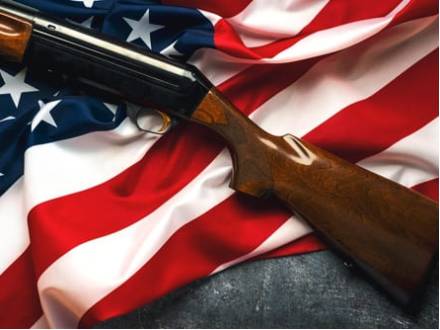 1580 N. Northwest Highway, Suite 12, Park Ridge, IL 60068
1580 N. Northwest Highway, Suite 12, Park Ridge, IL 60068
Can an Order of Protection Stop an Abusive Spouse From Possessing a Firearm?
 A recent landmark Supreme Court decision ruled on a case related to the Second Amendment rights of people under orders of protection. This case, US vs. Rahimi, addressed the issue of whether someone subject to a restraining order can have their access to weapons restricted.
A recent landmark Supreme Court decision ruled on a case related to the Second Amendment rights of people under orders of protection. This case, US vs. Rahimi, addressed the issue of whether someone subject to a restraining order can have their access to weapons restricted.
The ruling has significant implications in Illinois, where similar state laws dictate the possession of firearms by people who have been issued orders of protection. This article will discuss when someone’s possession of a weapon can be restricted because of an order of protection. If you think you could be directly impacted, contact a knowledgeable Chicago, IL family law attorney to learn more.
How Does an Order of Protection Affect Firearm Possession in Illinois?
When someone is accused of committing domestic violence, an order of protection can be issued against the alleged abuser. Otherwise known as a restraining order, an order of protection places restrictions on where the alleged abuser can go, who he/she can communicate with, and his/her right to bear arms. The state of Illinois has strict regulations about firearm possession for people under orders of protection, which include:
-
Firearm possession prohibition: Whether the order is temporary or permanent, people under an order of protection from an Illinois court are not permitted to possess firearms.
-
Firearm purchase prohibition: While the order is in effect, the person it has been issued to is prohibited from purchasing firearms or ammunition.
-
Requirement for immediate surrender: When someone is issued an order of protection, they need to relinquish the possession of any firearms they have. They can do this by surrendering their weapons to the police or selling them. They need to do this within 48 hours of being issued the order, or they will be in violation of the law.
These regulations aim to prevent potentially dangerous people from having weapons that could create dangerous situations. If your abuser violates these regulations, he/she can face serious consequences such as criminal charges, fines, and imprisonment.
Implications of US vs. Rahimi
This Supreme Court ruling affirms that states do indeed have the authority to restrict access to firearms for people under orders of protection. It emphasizes the state's duty to safeguard public safety and protect victims of domestic violence from further harm. This is a significant milestone in protection for victims of domestic violence, especially in tandem with Illinois’ commitment to public safety.
If you feared for your safety and were granted an order of protection to keep an abuser away from you or your children, US v. Rahimi offers law enforcement and prosecutors the legal precedent they need to keep people like you safe. It clarifies how federal firearm laws can be applied in cases of domestic violence, ensuring optimal protection for victims.
Schedule a Free Consultation with a Cook County, IL Family Law Attorney
If you are granted an order of protection, your abuser will need to abide by certain restrictions and limitations. One such limitation that has been reinforced by a recent Supreme Court ruling relates to the Second Amendment right to bear arms. If you are concerned that your abuser will violate these restrictions, contact a qualified Chicago, IL order of protection lawyer who can advise you on options for a non-compliance case. At The Law Office of George J. Skuros, we are dedicated to our clients’ safety and we help our clients understand the underlying legal issues in their cases so we can work together to find solutions to complicated problems. Call us at 312-884-1222 so we can get started.



 312-884-1222
312-884-1222









